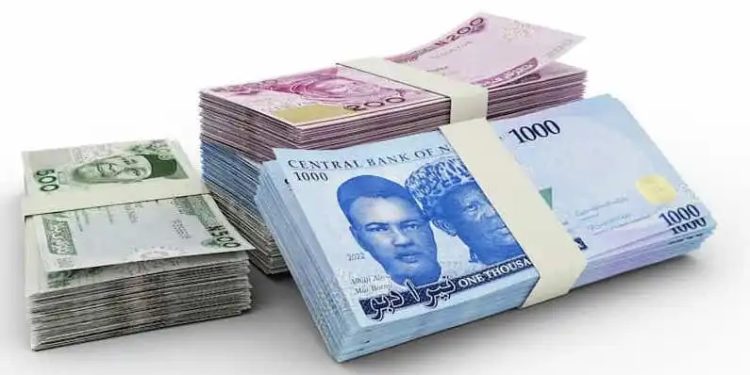Nigeria has experienced a significant spike in currency outside the banking system for the fourth consecutive month, reaching a staggering N2.08 trillion in April 2023. This amount accounts for approximately 87.43% of the total currency in circulation (CIC), which stood at N2.38 trillion during the same period. The Central Bank of Nigeria (CBN) released the Money and Credit Data for April, shedding light on the escalating trend of hoarding cash and the challenges it poses to the country’s monetary policies.
The surge in currency outside the banks can be traced back to September 2022 when it peaked at N2.73 trillion, representing 85% of the N3.2 trillion CIC. Recognizing the need to address this issue, the CBN implemented the naira redesign policy as a measure to discourage hoarding and encourage depositing in banks. However, the suspension of the policy until December has led to increased apprehension among Nigerians, resulting in the hoarding of the new notes and a lack of trust in electronic banking.
Financial experts attribute the rise in currency hoarding to a combination of factors, including the spillover effect of the cash crunch and lingering distrust in electronic banking. Ayokunle Olubunmi, Head of Financial Institutions Ratings at Agusto & Co, highlighted the impact of the naira redesign policy suspension and the upcoming change in administration. With a new president and finance team taking office, uncertainties surrounding the implementation of the policy and its long-term effects on currency in circulation need careful monitoring.
Meristem Securities analysts also weighed in on the situation, pointing out that despite the CBN’s efforts to mop up excess liquidity in the system, broad money supply (M3) reached a record high of N54.63 trillion in March 2023. This increase was primarily driven by higher foreign asset holdings of the CBN and a decline in foreign claims on other depository corporations. The reintroduction of old Naira notes as legal tender until December 2023 by the Supreme Court contributed to the recent surge in currency outside banks.
The implications of the rise in currency hoarding extend beyond the immediate concerns of liquidity management. It raises questions about the effectiveness of inflationary control measures and the need for stronger monetary policies. As the old Naira notes re-enter circulation, the efficacy of future monetary policy decisions could be compromised, posing a fresh challenge for the CBN.
The upcoming change in leadership in Nigeria adds another layer of complexity to the situation. The new president and finance team will play a crucial role in determining the future direction of the naira redesign policy and its impact on the country’s economy. Their input and decisions will shape the monetary landscape and influence the behavior of individuals and businesses concerning cash hoarding and banking practices.
In conclusion, the sustained increase in currency outside the banking system in Nigeria calls for a comprehensive approach to address the underlying causes and restore trust in electronic banking. The CBN, along with the new administration, must collaborate to develop strategies that incentivize depositing cash in banks and foster confidence in digital transactions. Only by addressing these challenges can Nigeria effectively manage liquidity, strengthen monetary policies, and ensure a stable financial ecosystem for its citizens and businesses.











